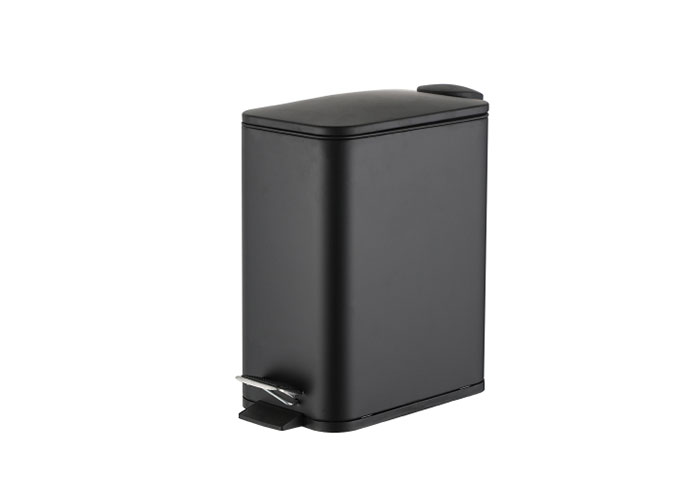Innovations in trash bins: the future of waste disposal
Innovations in Trash Bins: The Future of Waste Disposal
In the age of advancing technology and heightened environmental awareness, the humble trash bin has undergone a revolution, evolving into a sophisticated piece of hardware that embodies innovation, efficiency, and sustainability. Gone are the days of the traditional plastic trash can with a simple lid. Today,trash bins are at the forefront of waste management technology, paving the way for a more eco-friendly and convenient future.
Smart Trash Bins
Smart trash bins, also known as digital trash bins or smart bins, are the latest addition to the waste management landscape. These innovative bins utilize advanced technology to make waste disposal more convenient and efficient. They feature sensors that can automatically detect when the trash needs to be emptied, alerting the user via an app on their smartphone or smart device when it's full or ready for pickup.

Smart trash bins have the ability to connect to smart home systems, allowing users to control and monitor their waste disposal needs remotely. This integration not only provides real-time information about trash levels or pickup reminders but also optimizes waste collection routes, reducing the environmental impact of transportation and cutting down on fuel emissions.
Moreover, smart trash bins have the potential to revolutionize waste management by providing valuable data on waste composition and disposal patterns. This data can help inform waste reduction strategies, recycling programs, and public awareness campaigns aimed at reducing waste generation.
Biodegradable Trash Bins
Biodegradable trash bins are another innovative solution in waste disposal that aims to reduce the environmental impact of waste. These bins are made from materials that can naturally break down, such as bioplastic or compostable materials. When the bin is full, the contents can be composted or left to decompose, eliminating the need for landfill disposal.
Biodegradable trash bins offer a sustainable alternative for individuals and businesses looking to reduce their carbon footprint. By using these bins, waste is diverted away from landfills and instead turned into compost or other valuable by-products. This not only cuts down on waste but also promotes a circular economy by turning waste into a resource for soil amendment and plant growth.
Mechanical Bins
Mechanical Bins, or robotic trash cans, are the latest advancement in automated waste disposal. These innovative systems utilize robotic arms to efficiently collect and transfer waste from grabage cans to garbage trucks, greatly reducing manual labor and operational costs.
Mechanical bins are typically comprised of a mobile platform equipped with a robotic arm and a fixed bins. When the trsdh bins is full, the robotic arm automatically extends and empties its contents into a waiting garbage truck. This automated process not only reduces the physical effort required to empty bins but also minimizes exposure to garbage-related diseases and odors.
Moreover, mechanical bins offer significant advantages in terms of operational efficiency. They can process a wide range of waste types, from organic matter to plastic and paper, enabling comprehensive waste management without the need for manual sorting. This automation not only improves productivity but also reduces the potential for human error in the collection and disposal of waste.
Despite their innovative nature, mechanical bins still face challenges in terms of widespread adoption and implementation. One of the main hurdles is their high upfront cost, which may prevent smaller municipalities or individual businesses from investing in this technology. Additionally, questions remain about the long-term durability and maintenance of these complex systems.
In conclusion, innovations in trash bins are leading the way in waste disposal, paving the way for a more sustainable and convenient future. From smart bins and biodegradable materials to mechanical bins, these advancements are transforming how we manage waste, moving us closer to a zero-waste society. As technology continues to evolve, it's likely that we'll see even more innovative solutions emerge in the field of waste management, further improving our ability to reduce our environmental footprint and preserve resources for future generations.
